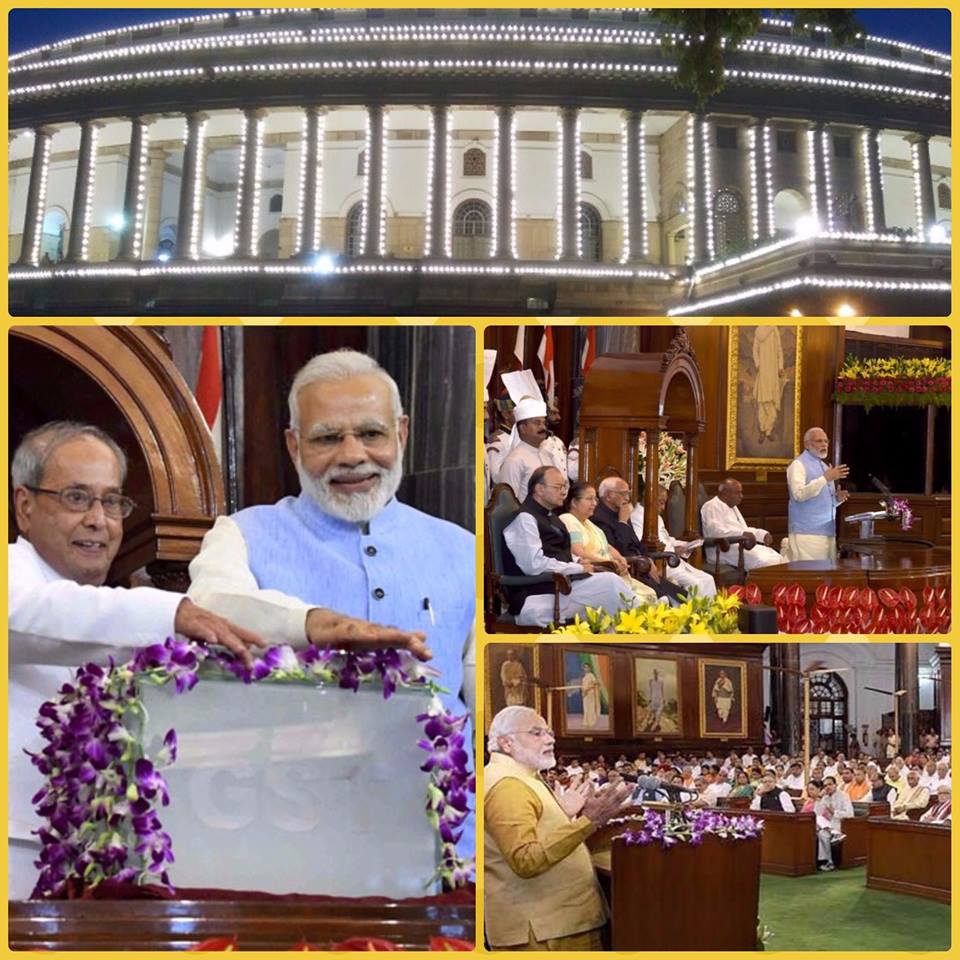TIL Desk/National/New Delhi/ The Goods and Services Tax (GST), India`s biggest tax reform since Independence, rolled out past midnight Friday in the precincts of the hallowed Central Hall of Parliament to usher in a new indirect tax regime in an event that sought to evoke memories of the famous `Tryst with Destiny` night the country got freedom in 1947.The GST regime catapults India into a select league of nations that have a national sales tax.
The one national GST unifies the country’s USD 2 trillion economy and 1.3 billion people into a common market, an exercise that took 17 tumultuous years. The GST will eliminate the compounding effect of the current multi-layered tax system as well as the cross-state tax heterogeneity by fixing the final tax rate.
The GST regime seeks to reduce rates of over 50 per cent of items of daily use and charge others at much lower rate of 5 per cent, 12 per cent and 18 per cent. A higher tax rate is imposed on luxury and sin goods at 28 per cent in the new regime. Certain services like telephone, banking and insurance are expected to feel the pinch of higher taxes.
The GST also promises taxpayers a refund against their sales within 60 days. Similarly, exporters will get refund within seven days. For protection of consumer rights, the new law provides anti-profiteering provisions. In a departure from the normal practice, the GST will be administered together by the Centre and the states.



